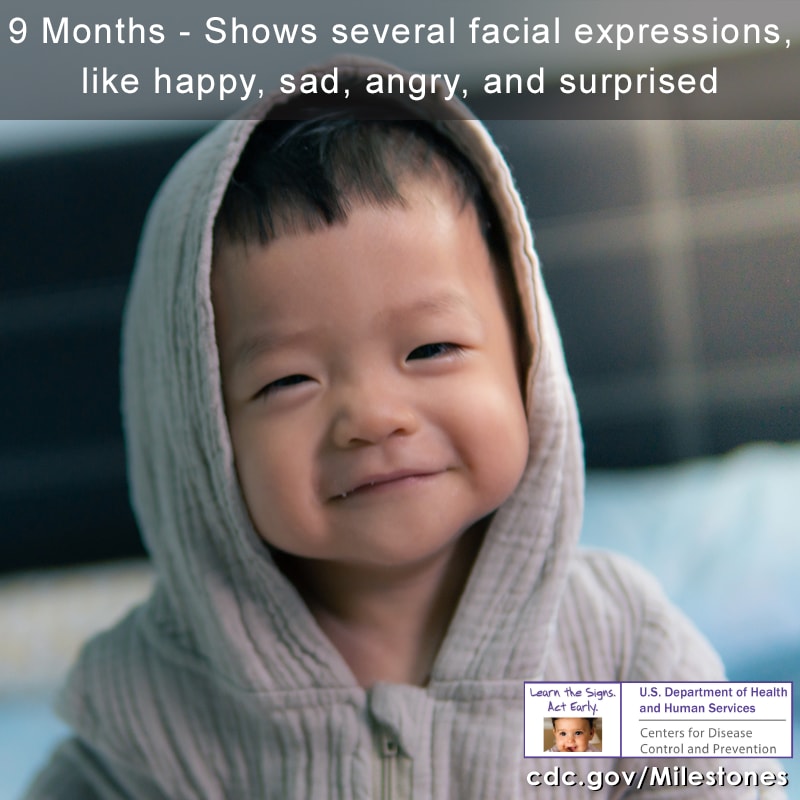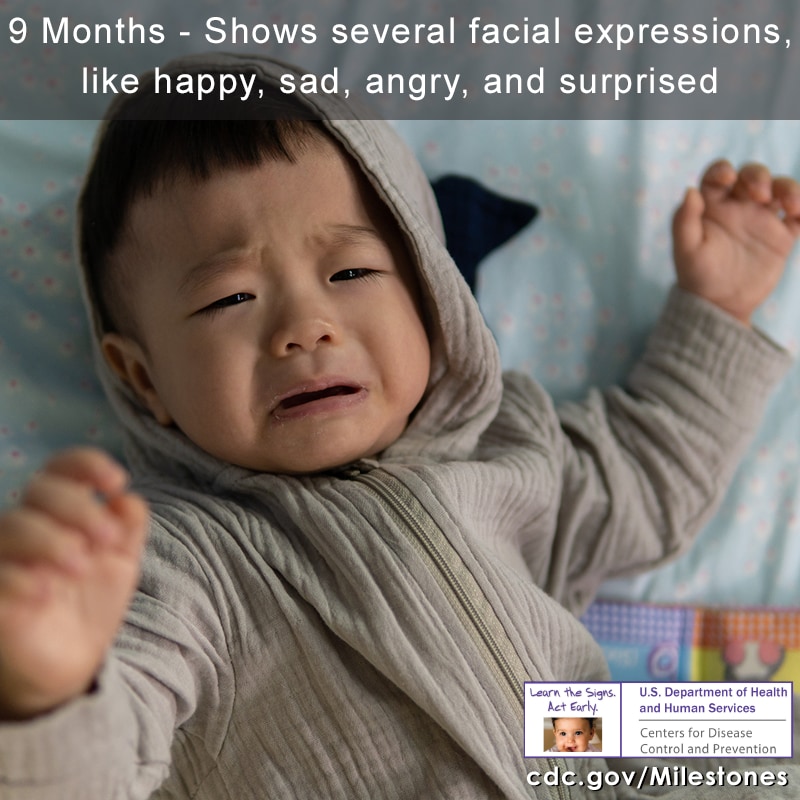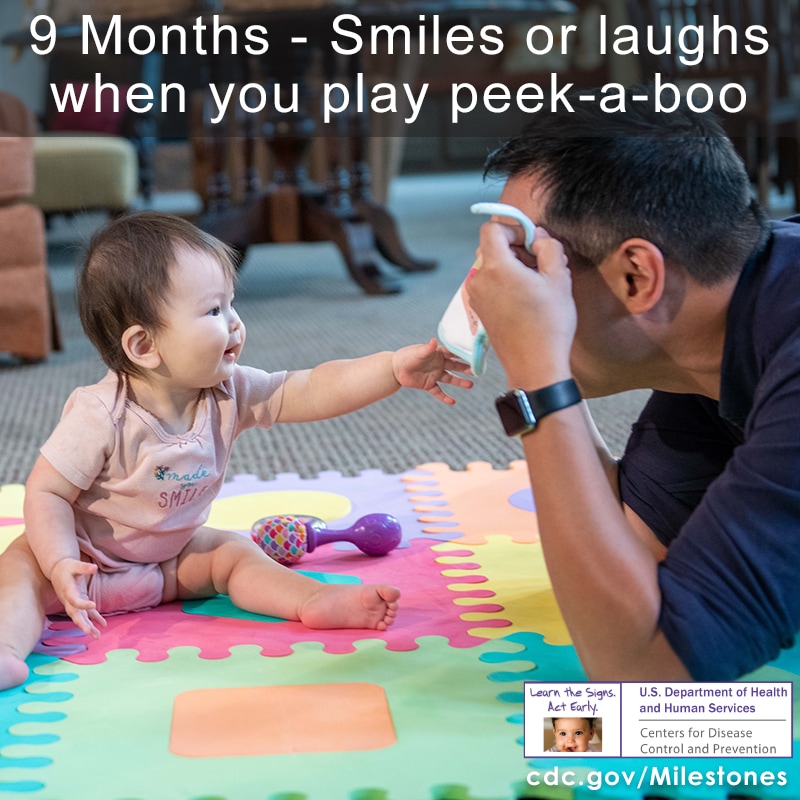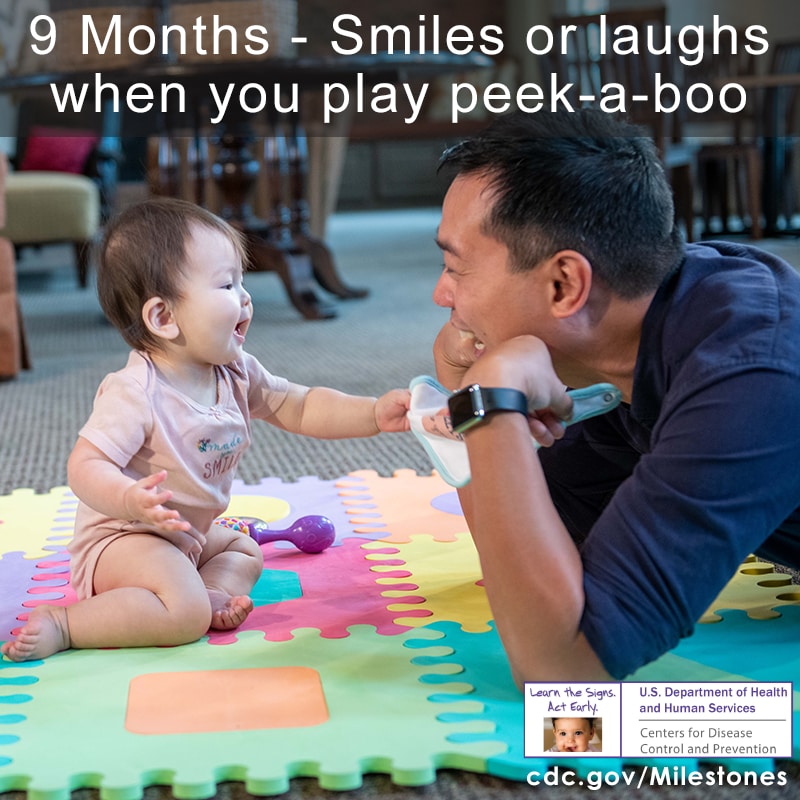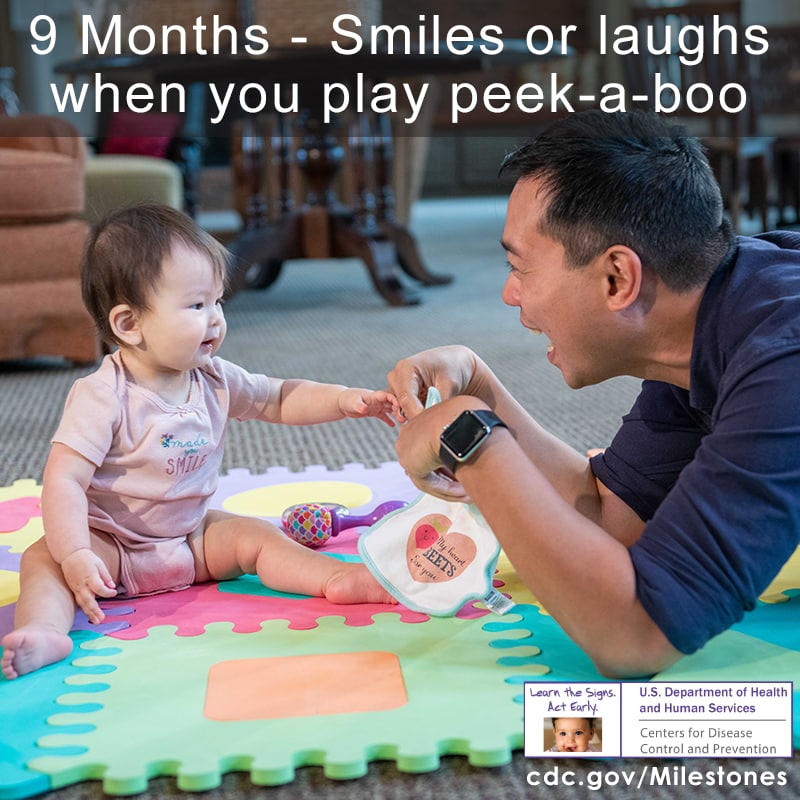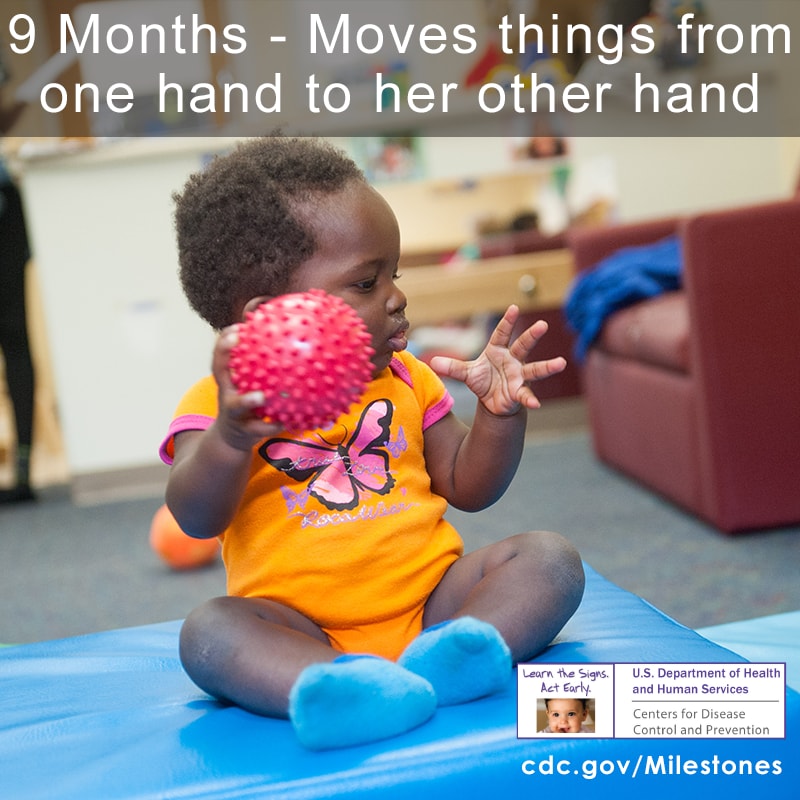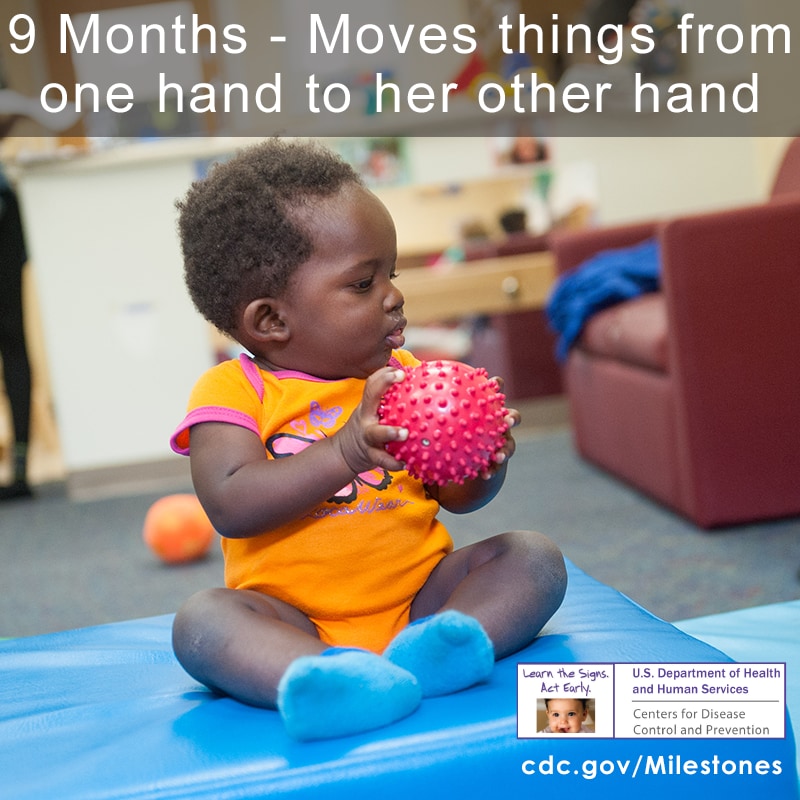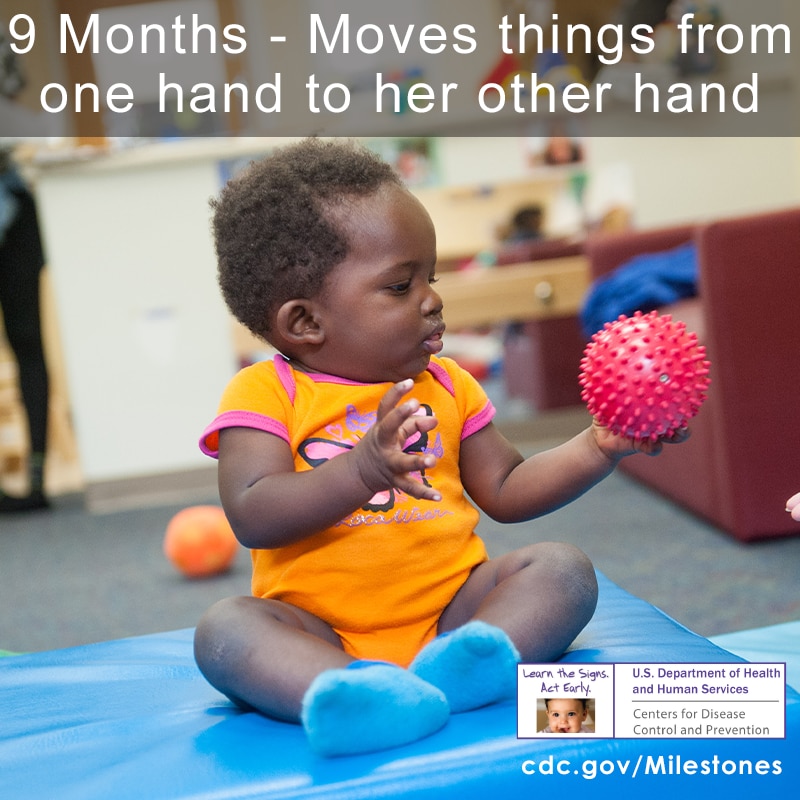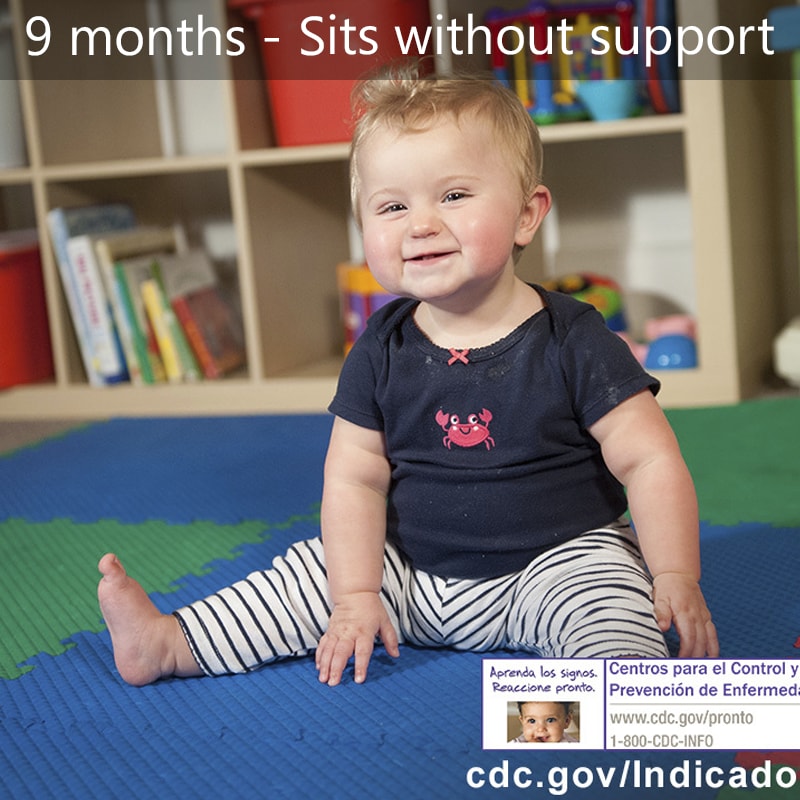What to know
- Developmental milestones are things most children (75% or more) can do by a certain age.
- Children reach milestones in how they play, learn, speak, act, and move.
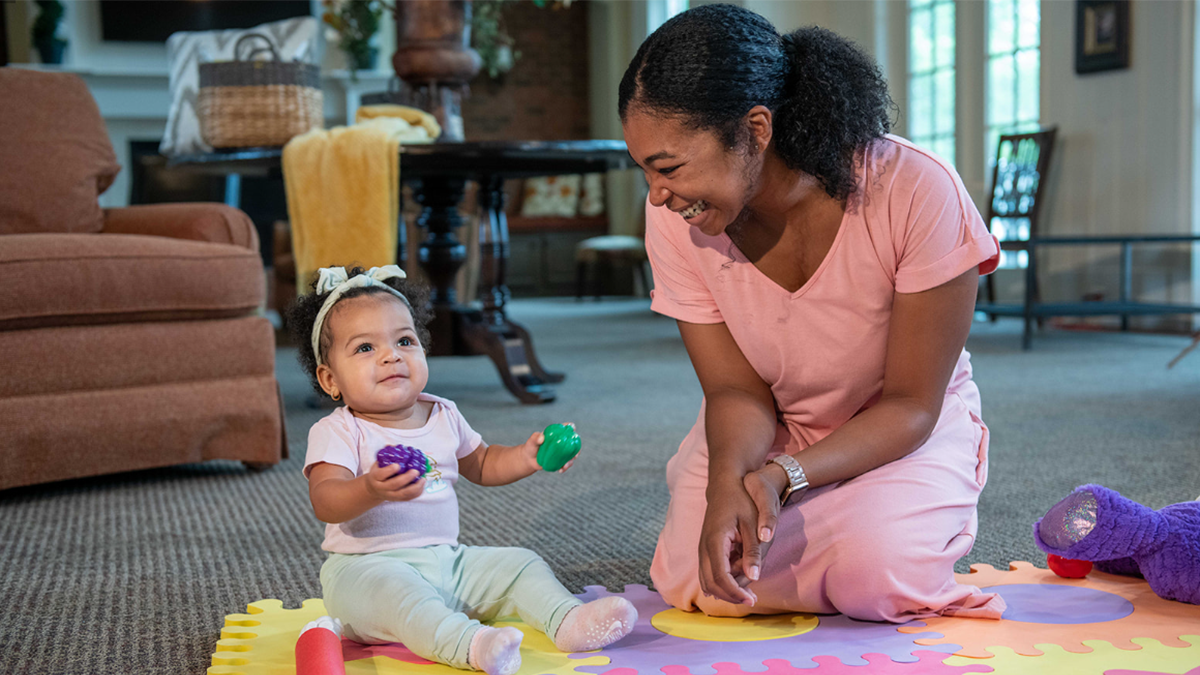
Overview
Check the milestones your child has reached by the end of 9 months by completing the checklist below. Share it with your child's doctor, teacher, and other providers, and be sure to talk about the milestones your child has reached and what to expect next.
If your child was born more than 3 weeks prematurely, use his/her corrected age. If your child's age falls between 2 checklist ages, use the checklist for the younger age.


